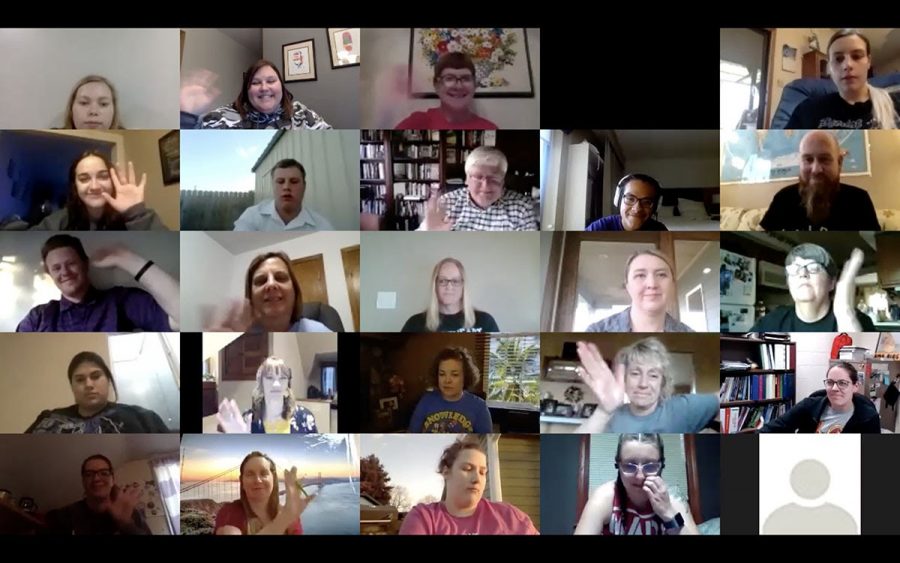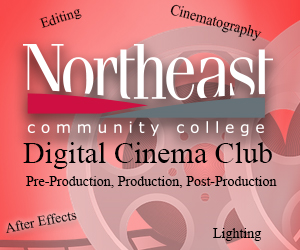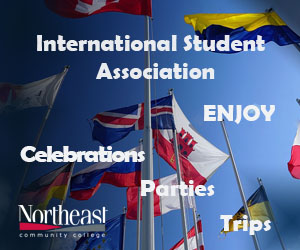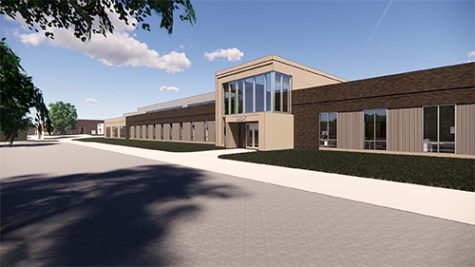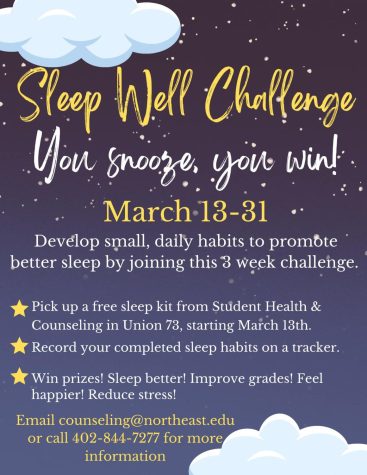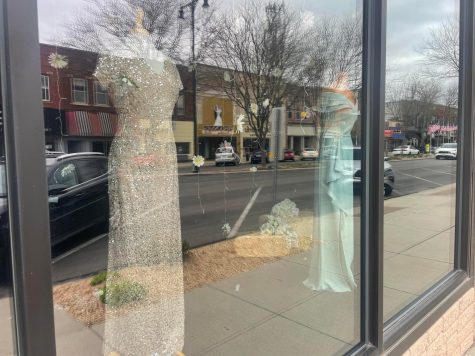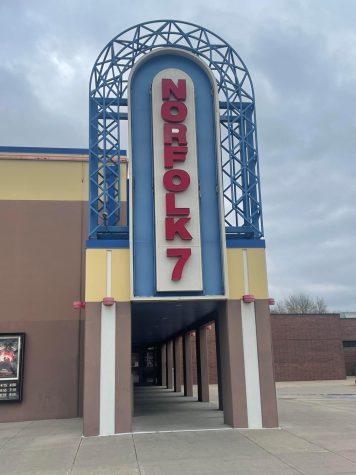Northeast students weigh in on impact of COVID-19 on their education
April 28, 2020
NORFOLK, Neb. – Members of the Student Leadership Association (SLA) at Northeast Community College regularly keep in contact with their peers, but with no students on the Norfolk campus for the remainder of the spring semester due to the COVID-19 pandemic, they did the next best thing – they have hosted forums through the Zoom video conferencing portal.
“These forums are designed to give students a little more insight into other students’ lives and the lives of faculty as well,” said Joshua Santiago, SLA secretary and forum leader. “I know a lot of us have a little bit of cabin fever as we stay inside our quarantine zones, so it’s important for us to reach out and to know how each of us is doing as human beings.”
Approximately 80 people participated in the first two scheduled weekly forums recently with a variety of questions asked. Many came from student submissions that SLA leaders have been fielding through email and social media posts as well as direct questions from students who have reached out.
“As (student) leaders on campus, one of our important missions is to communicate with the students,” Santiago said.
Adapting to having all classes move online or in alternative delivery formats since March 23 was addressed during the forums. The change has worked well for many students, while others have experienced some challenges.
One student enrolled in an applied technology program said the move to online has been difficult for him. He said he is more of a visual, hands-on, learner.
“I finally got the Zoom to work after I put it on my phone to join in, which is such a relief. Now I can talk to my teachers and get a better understanding as to what is going on and get my questions answered.”
Michele Gill, interim vice president of Educational Services, encouraged the student to speak with his instructors to ensure he gets the help he needs.
“If you reach out to your instructors, they will know you are having some struggles,” she said. “They will also be working with students, especially those in those hands-on areas, such as yours, to make sure you don’t get behind. Hang in there!”
Gill’s comments were echoed by SLA member Anjolena Hampton.
“I have reached out to several of my instructors and they have been very generous to let me do an assignment after a due date or something like that. Just reach out to your instructors and tell them what is going on – that can go a long way. Don’t be afraid to do that because they will be there for you.”
All of the instructors who spoke during the forums said they have been working hard to make sure their students have what they need to complete their assignments and finish the academic year.
Business Instructor Cara Hohne said she creates a weekly video and walks through all the information so her students have what they will need for their classes.
“That way, I am hoping that I handle a lot of questions that students have. But the key piece is, students have to watch that video,” she said. “That is the one thing students have to remember – I am here to help and I will answer every question, but they have to do their part and reach out. I am here to help students be successful and not be part of the reason why they are not going to finish.”
Matt McCarthy, criminal justice program director/faculty member, said students need to be frank with their instructors. He said faculty need to understand that students are having problems. McCarthy said he and his colleagues are hearing all kinds of things – meaning that students need to be up front with them.
“You have been with us for a semester to a year, so we know who you are right now. Be honest with us and don’t be embarrassed. Just be up front. That’s the best opportunity for us to help you out.”
Amanda Nipp, vice president of Student Services, said there are additional options for students to reach out. One is a form on the Northeast website that allows them to request assistance.
She said, “If you’re not sure how or where to ask a question, click the request assistance link and fill out a form seeking support. We have to know if you are struggling so we can help you. We’ll then get back to you with assistance and information.”
Student support services at Northeast Community College have and will continue to be available through the semester. Many faculty members have virtual office hours for students to drop in and check in with their instructors. The Tutoring Center and Writing Clinic are operating through Zoom.
Stacey Aldag, math instructor, said the College’s Math Success Center is still open.
“It’s Zoom, it’s drop in. Students are getting a lot of one-on-one time according to our tutors. They just need to ask,” she said.
In addition, all first-year advisors are meeting with students via Zoom, by telephone and other avenues to assist them in their summer and fall schedules. Also, Disability Services staff are checking in with their students while the Career Services Office is working with students on their resumes, with mock interviews, as well as connecting them to their next employment opportunity.
Another area where some students expressed concern was over added stress of working more hours at their jobs while having to adjust to their new life with online classes.
Santiago said a few students have felt they are getting more assignments in their classes, “but really, we have to hone in on our own organizational skills and just plan out every class.”
Gary Timm, history/political science instructor, informed his students prior to moving online that he would bring in activities that would have been done in class anyway.
“So, it’s not doing any more work, it’s just that instead of coming in to a face-to-face class two to three-days a week, students are doing those activities. Time wise, it’s the same; it’s just a perception that extra is being loaded in. They are doing the same thing in the same time element.”
Forum participants also addressed the impact the pandemic has played on Northeast’s educational values this semester. Both students and faculty members stressed that more good than bad will come out of this crisis when it’s all over.
“It’s a lot of what ifs, a lot of frustration and emotions that I’m going through, but I think it can turn into a positive,” said another applied technology student. “I was so negative at first, but then the more I thought about it, I am able to go into my internship early and actually get a lot of hands-on experience.”
Developmental English/ESL Instructor Thomas Elliott said both students and instructors are benefitting from the situation as they gain a better sense of using technology in ways they may have never envisioned. He said everyone is being forced to be creative thinkers and problem solvers like never before.
“It’s a valuable experience and if we look at it in that way, I think that would be beneficial,” Elliott said. “There are always going to problems, but there is a good side, too.”
Paul Muncy, history/geography instructor and SLA co-advisor, offered encouraging words to the students. He said when they earn their credentials, it will tell future employers that they can push through to the end on just about anything.
“This is going to be that point in your job interview where you say, ‘Everything dropped out from underneath us and I still got through.’ That’s a huge part of education, so keep that up.”
Anthony Beardslee, media arts – audio recording instructor, said he has told his students that the “odd upside” to all of this is that this time in their lives could benefit them greatly.
“This can be the case for any profession, really, but what employers are looking for are people to be resilient and to be able to adapt when things don’t go right,” Beardslee said. “So when everything goes bonkers, can you still get things together to get the job done? At some point in a job interview, you’re going to be asked ‘name a time when you were able to overcome a challenge?’ Here it is.”



